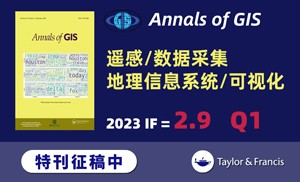当前位置:
X-MOL 学术
›
Quant. Mark. Econ.
›
论文详情
Our official English website, www.x-mol.net, welcomes your
feedback! (Note: you will need to create a separate account there.)
You get what you give: theory and evidence of reciprocity in the sharing economy
Quantitative Marketing and Economics ( IF 1.3 ) Pub Date : 2018-08-09 , DOI: 10.1007/s11129-018-9201-9 Davide Proserpio , Wendy Xu , Georgios Zervas
Quantitative Marketing and Economics ( IF 1.3 ) Pub Date : 2018-08-09 , DOI: 10.1007/s11129-018-9201-9 Davide Proserpio , Wendy Xu , Georgios Zervas
We develop an analytical framework of peer interaction in the sharing economy that incorporates reciprocity, the tendency to increase (decrease) effort in response to others’ increased (decreased) effort. In our model, buyers (sellers) can induce sellers (buyers) to exert more effort by behaving well themselves. We demonstrate that this joint increased effort can improve the utility of both parties and influence the market equilibrium. We also show that bilateral reputation systems, which allow both buyers and sellers to review each other, are more responsive to reciprocity than unilateral reputation systems. By rewarding reciprocal behavior, bilateral reputation systems generate trust among strangers and informally regulate their behavior. We test the predictions of our model using data from Airbnb, a popular peer-to-peer accommodation platform. We show that Airbnb hosts that are more reciprocal receive higher ratings and that higher rated hosts can increase their prices. Therefore, reciprocity affects equilibrium prices on Airbnb through its impact on ratings, as predicted by our analytical framework.
中文翻译:

您得到的是回报:共享经济中互惠的理论和证据
我们建立了共享经济中对等互动的分析框架,该框架融合了互惠性,即随着他人的增加(减少)的努力而增加(减少)努力的趋势。在我们的模型中,买方(卖方)可以通过表现良好来诱使卖方(买方)付出更多的努力。我们证明,这种共同的努力可以提高双方的效用并影响市场均衡。我们还表明,允许单方买卖双方互相审查的双边信誉系统比单边信誉系统对互惠的反应更快。通过奖励相互的行为,双边声誉系统会在陌生人之间建立信任,并非正式地规范他们的行为。我们使用来自流行的点对点住宿平台Airbnb的数据测试模型的预测。我们显示,互惠程度更高的Airbnb房东获得更高的评级,而评级较高的房东可以提高价格。因此,正如我们的分析框架所预测的,互惠会通过其对评级的影响来影响Airbnb的均衡价格。
更新日期:2018-08-09
中文翻译:

您得到的是回报:共享经济中互惠的理论和证据
我们建立了共享经济中对等互动的分析框架,该框架融合了互惠性,即随着他人的增加(减少)的努力而增加(减少)努力的趋势。在我们的模型中,买方(卖方)可以通过表现良好来诱使卖方(买方)付出更多的努力。我们证明,这种共同的努力可以提高双方的效用并影响市场均衡。我们还表明,允许单方买卖双方互相审查的双边信誉系统比单边信誉系统对互惠的反应更快。通过奖励相互的行为,双边声誉系统会在陌生人之间建立信任,并非正式地规范他们的行为。我们使用来自流行的点对点住宿平台Airbnb的数据测试模型的预测。我们显示,互惠程度更高的Airbnb房东获得更高的评级,而评级较高的房东可以提高价格。因此,正如我们的分析框架所预测的,互惠会通过其对评级的影响来影响Airbnb的均衡价格。









































 京公网安备 11010802027423号
京公网安备 11010802027423号